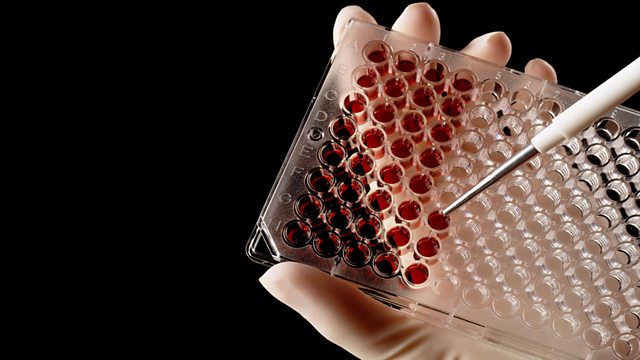Artificial Life
Peter Evans meets the researchers who are designing bacterial cells to carry out a raft of unique functions.
The field of genetic engineering has been around for nearly three decades but biologists and engineers are now beginning to take the research a stage further. They're trying to programme cells like tiny computers, to carry out a range of roles such as detecting toxic substances or even repairing our bodies' tissues.
This new, yet controversial field of synthetic biology appears to offer huge potential. As this week's Frontiers suggests, scientists may well be able to create totally new life forms of artificial life in the lab through this new technology.
Echoes of Frankenstein perhaps? Or a force for human health and welfare? Peter Evans meets the researchers who are designing bacterial cells to carry out a raft of unique functions.
We also hear from Craig Ventor, a leading player in the race to map the human genome, who is planning to build a bacterial genome from scratch in the hope of producing new forms of alternative energy fuels. And we hear from the bioethicists who weigh up the risks of bioterrorism and the worries over freedom of information that dominate this field of research.
Last on
Broadcast
- Wed 23 Nov 2005 21:00Βι¶ΉΤΌΕΔ Radio 4
Podcast
-
![]()
Frontiers
Programme exploring new ideas in science and meeting the researchers responsible


